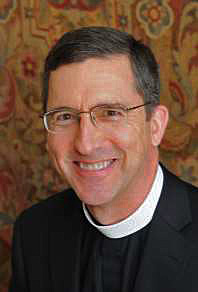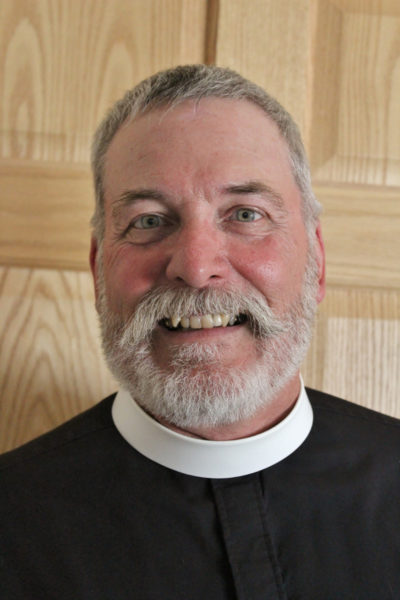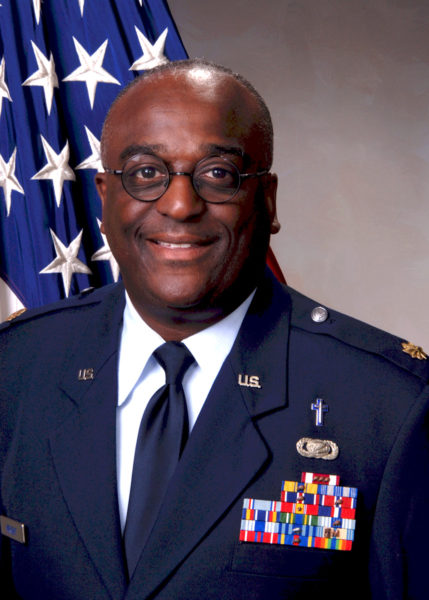Three nominated for bishop suffragan for armed services and federal ministriesPosted Aug 23, 2016 |
|
[Episcopal Church Office of Public Affairs press release] Three nominees have been announced for Episcopal Church bishop suffragan for armed services and federal ministries.
With an office based in Washington D.C., the bishop suffragan for armed services and federal ministries is a member of the staff of Presiding Bishop Michael Curry.
The three nominees are:
 The Rev. Christopher Garcia, Emmanuel Episcopal Church, Greenwood, Virginia, Diocese of Virginia. A career Army officer, he retired after 25 years of service in the Judge Advocate General’s Corps with the rank of colonel. He was deployed to Saudi Arabia and Iraq for Desert Shield and Desert Storm.
The Rev. Christopher Garcia, Emmanuel Episcopal Church, Greenwood, Virginia, Diocese of Virginia. A career Army officer, he retired after 25 years of service in the Judge Advocate General’s Corps with the rank of colonel. He was deployed to Saudi Arabia and Iraq for Desert Shield and Desert Storm.
 The Rev. David McElwain, Veterans Administration staff chaplain in Cheyenne, Wyoming, Diocese of Wyoming. A retired Navy commander, among his military posts he served as pastoral care chaplain at the Naval Hospital Jacksonville, Florida, and as command chaplain, supervisory chaplain and battle group chaplain, USS Nassau Amphibious Ready Group.
The Rev. David McElwain, Veterans Administration staff chaplain in Cheyenne, Wyoming, Diocese of Wyoming. A retired Navy commander, among his military posts he served as pastoral care chaplain at the Naval Hospital Jacksonville, Florida, and as command chaplain, supervisory chaplain and battle group chaplain, USS Nassau Amphibious Ready Group.
 The Rev. Carl Wright, St. Andrew’s Church, Pasadena, Maryland, Diocese of Maryland. In his military career, he has served as deputy command chaplain for the Air Force Global Strike Command (AFGSC) at Barksdale Air Force Base, Louisiana. Commissioned an Air Force chaplain in August 1993, Lieutenant Colonel Wright is an Associate Member of the Anglican religious Order of the Holy Cross (OHC).
The Rev. Carl Wright, St. Andrew’s Church, Pasadena, Maryland, Diocese of Maryland. In his military career, he has served as deputy command chaplain for the Air Force Global Strike Command (AFGSC) at Barksdale Air Force Base, Louisiana. Commissioned an Air Force chaplain in August 1993, Lieutenant Colonel Wright is an Associate Member of the Anglican religious Order of the Holy Cross (OHC).
The election is slated for the fall meeting of the House of Bishops Sept. 15-20. According to Episcopal Church Constitution Article II sec. 7, the House of Bishops who have gathered for the session will elect the bishop suffragan for armed services and federal ministries. The successful nominee must garner at least 50 percent of the total votes plus 1.
Christopher Weaver, rear admiral, U.S. Navy-retired, is the chair of the search committee. Members of the committee are: Major General Razz Waff, USA (Ret.); Chaplain (Col.) Paul Minor, USANG; Col. Stephen Dalzell, USA (Ret); Chaplain (Col.) Carl Andrews, USAF (Ret.); Chaplain Marion Thullbery, Department of Veterans Affairs; Chaplain Christine Waweru, Federal Bureau of Prisons.
For more information contact Weaver at chrisweaver1@att.net, or Maggie Mount mmount@episcopalchurch.org.

Social Menu